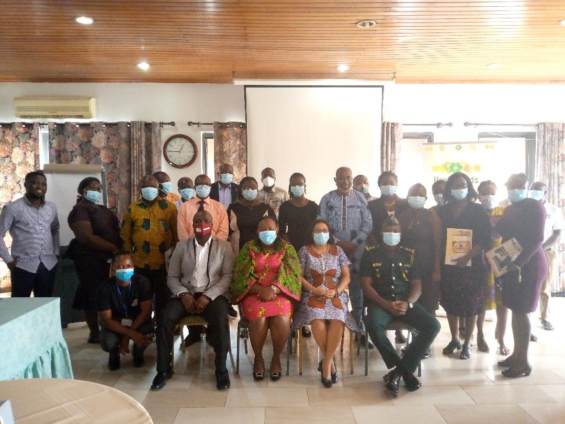A field study on mental health treatment at traditional and faith-based healing centres in Ghana shows that about 30 per cent of persons with mental illness who patronise these services are exposed to potentially harmful treatments.
It revealed that traditional healers denied their patients food and water, flogged them, deprived them of sleep, and restrained them with chains and ropes as a part of the healing process.
The study was conducted by Basic Needs Ghana, a Non-Governmental Organisation, Mental Health Society of Ghana, and the Danish Institute against Torture with funding from the Danish Government.
According to the study, traditional and faith- based healers reported that such harmful practices were helpful to the recovery process of persons with mental illness.
It said fasting was used to clear toxins and evil spirits while the use of chains and ropes had a calming effect on the patients.
Mr Hannan Legend, a Project Coordinator at Basic Needs Ghana, who disseminated the findings at a meeting in Accra, said there was an urgent need to increase knowledge on trauma and its consequences in local communities and community health workers.
That, he said, was necessary as the role of faith-based organisations and traditional healers were necessary to deliver effective mental health care in Ghana.
He called for collaboration between traditional healers and health centres to ensure the delivery of effective healthcare services to persons living with mental illness.
“There are more traditional and faith-based healers than mental health practitioners. This is because belief systems appear to play a key role in the healing process as mental illness is believed to have a spiritual cause. So we need collaboration,” he said.
In Ghana, traditional and faith based healers provide consultations to persons with mental illness. They also provide residential facilities for patients commonly known as prayer camps or healing centres.
The programme coordinator said although the Ghana Mental Health Law, Act 846, 2012, and other legal frameworks banned flogging, shackling and chaining on mentally ill persons, the practice was still ongoing at some healing centres across the country.
Mr Legend appealed to the Government to allocate more resources to the Mental Health Authority to promote the inclusion of marginalised persons with the disorder.
Mental illnesses, also called mental health disorders, refer to a wide range of mental health conditions that affect a person’s mood, thinking and behaviour.
Examples of mental illness include depression, anxiety disorders, schizophrenia, eating disorders and addictive behaviours.
Many people have mental health concerns from time to time, but a mental health concern becomes a mental illness when ongoing signs and symptoms cause frequent stress and affect one’s ability to function.
The World Health Organisation estimates that 13 per cent of Ghana’s population suffers from some form of mental health problems, with two per cent likely to have severe mental illness.
Latest Stories
-
KNUST health sciences graduates urged to uphold integrity in leadership
42 seconds -
16 missing after Red Sea tourist boat sinks
7 mins -
Angela Merkel defends ties with Russia and blocking Ukraine from Nato
11 mins -
Right to Dream are filling ‘the big gap’ in Ghana – UG Director of Sports
45 mins -
Prosecutor drops federal criminal cases against Trump
52 mins -
Asante Kotoko removes Prosper Ogum from Interim Management Committee
57 mins -
Emirates relieved as colleague returns safely after alleged kidnapping
1 hour -
Right to Dream unveils monument to celebrate silver jubilee
1 hour -
Developed countries commit $300bn annually to boost climate finance
1 hour -
Stratcomm Africa celebrates 30 years with inspiring Women S.H.A.R.E. anniversary event
1 hour -
26 arrested for brandishing, indiscrimimately firing toy guns in public
2 hours -
CHRAJ report confirms National Cathedral is a taxpayer-funded project – Ablakwa
2 hours -
Hotjobs Africa CEO, Chief Emmanuel Mefful honoured as one of ‘Ghana’s 100 Most Influential People’ in 2024
2 hours -
H&M Manufacturing Limited CEO Charles Hanna named recipient of 100 Most influential People Awards, 2024
2 hours -
JoyNews National Dialogue on Clean Air set for November 26
3 hours

